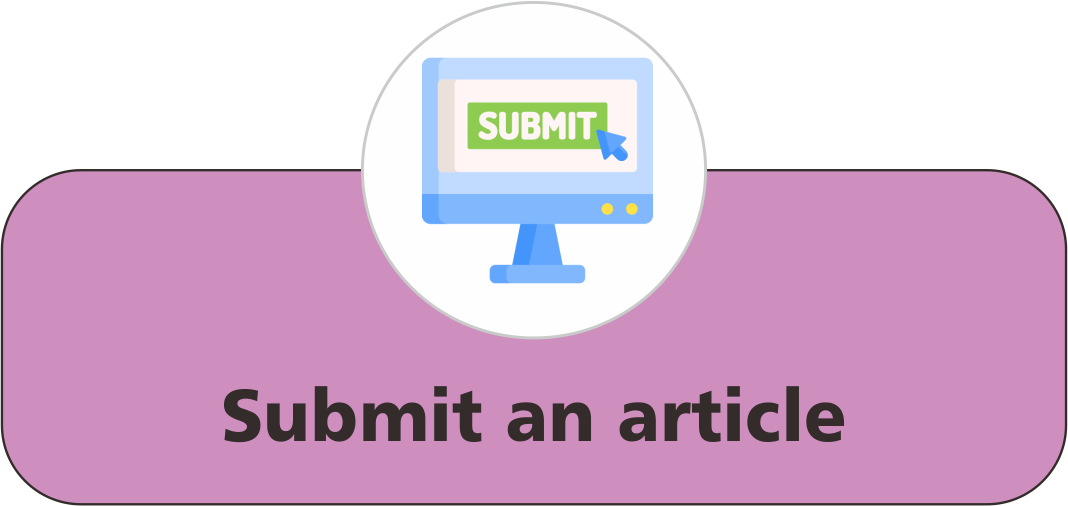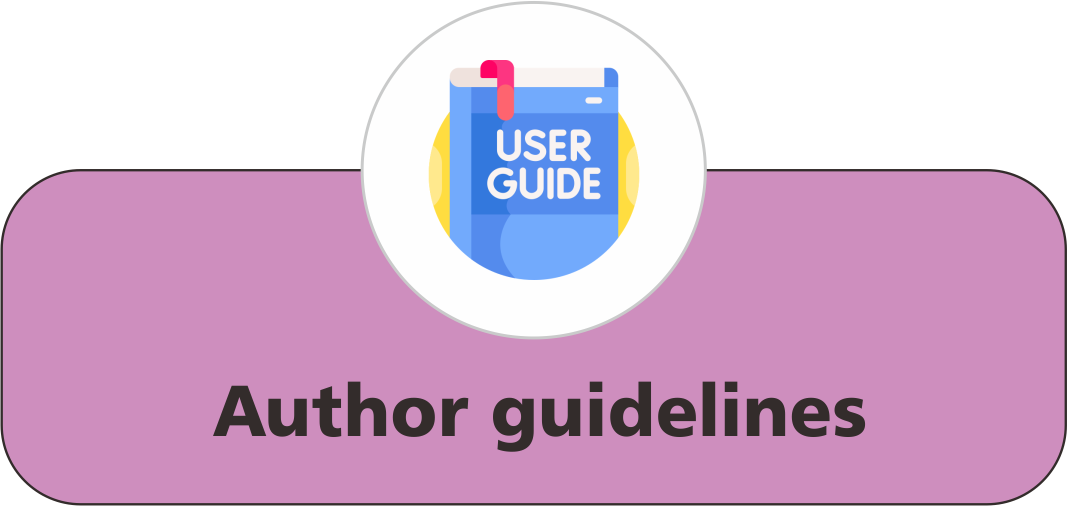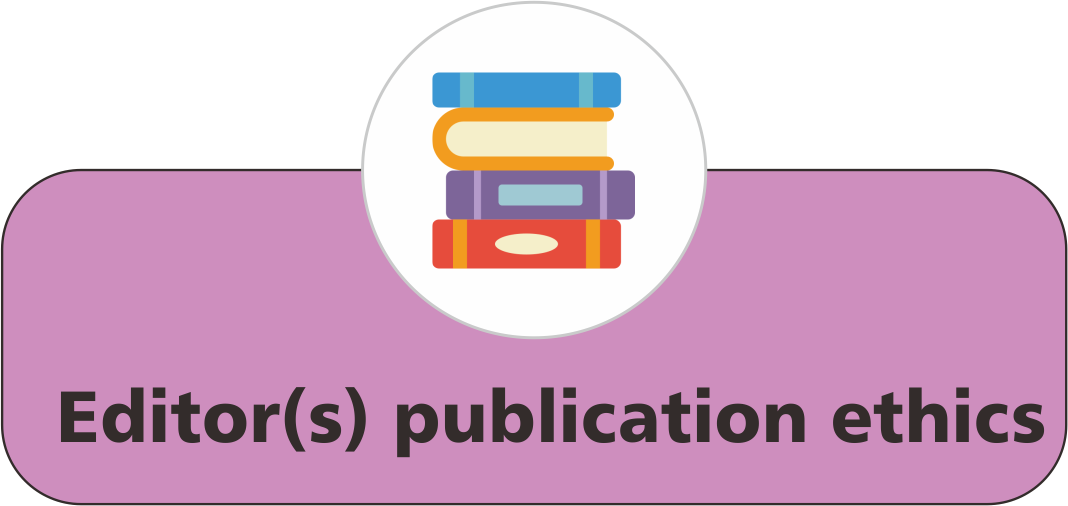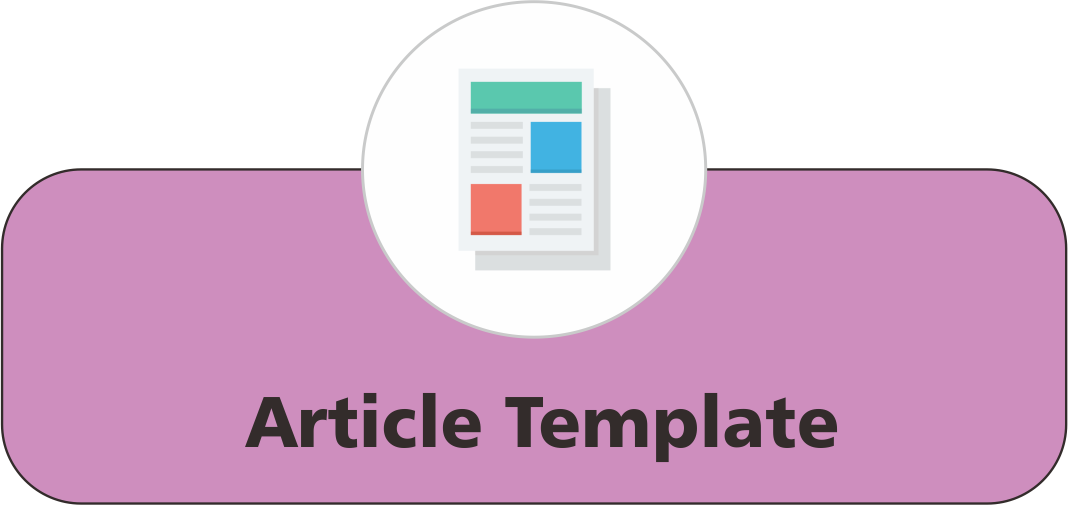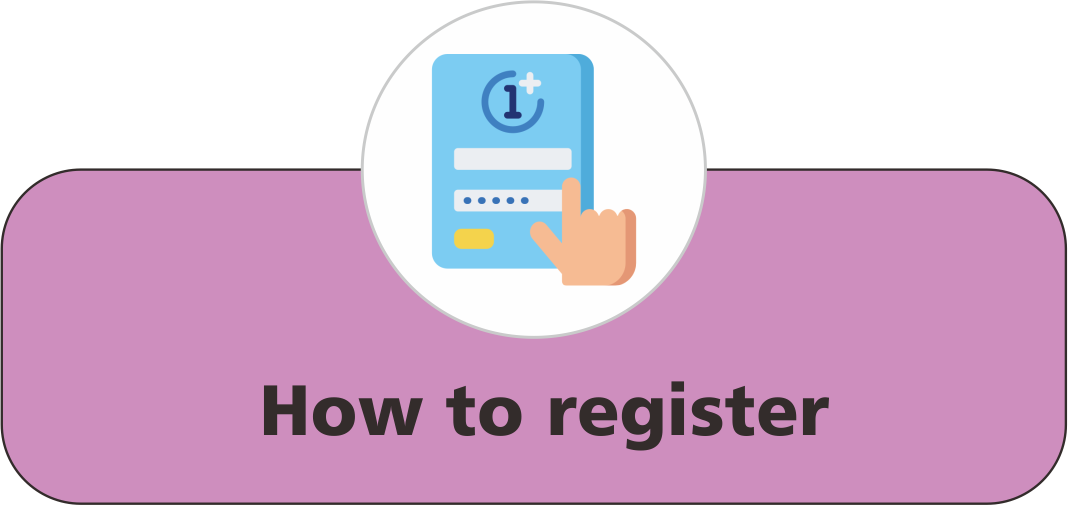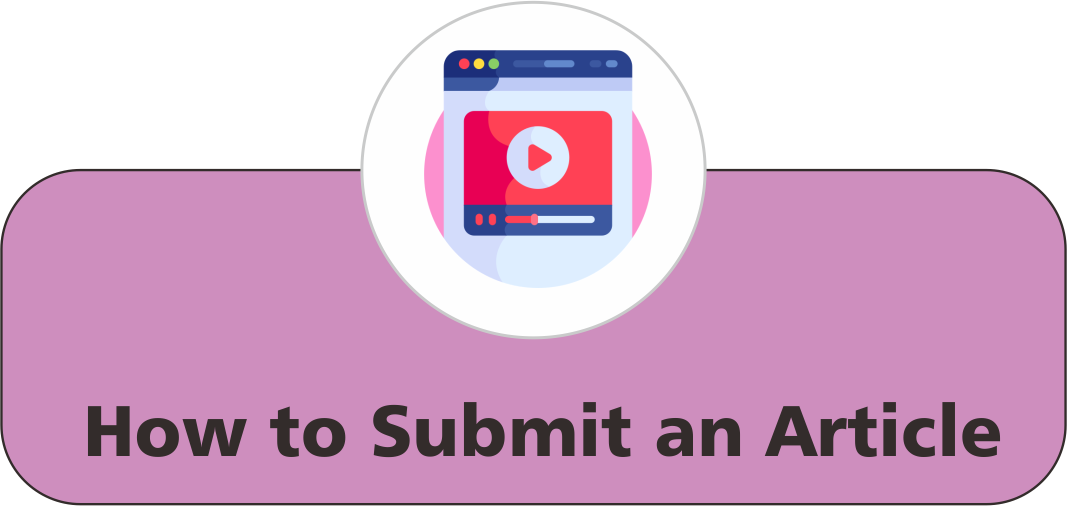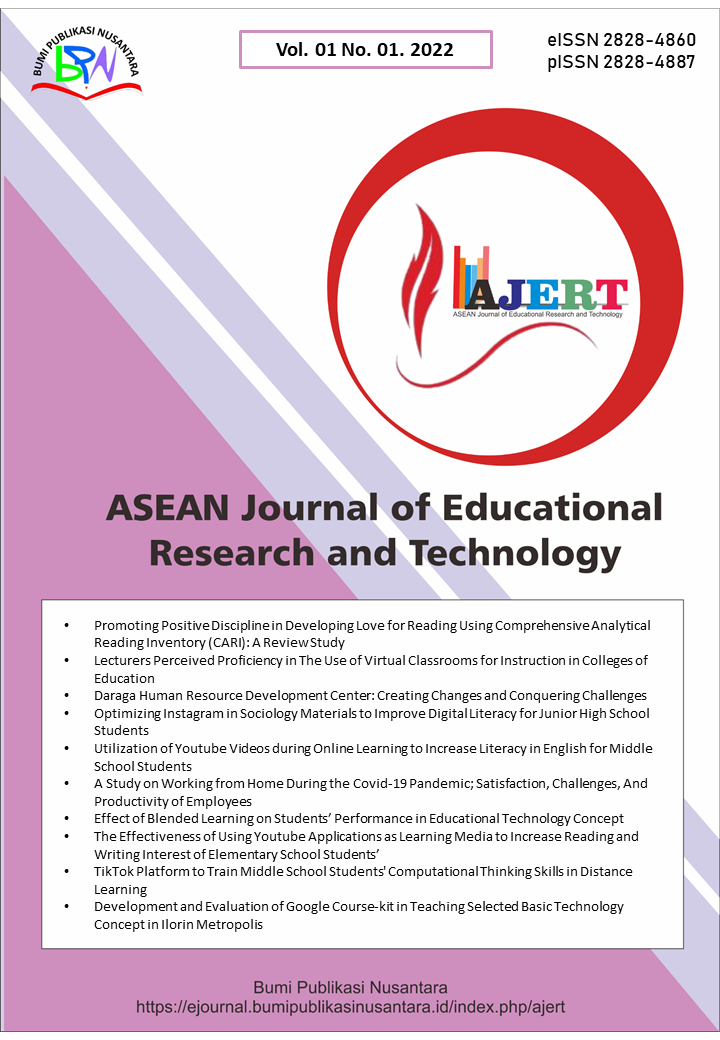Mapping Research Trends in Materials-Based Science Education for Sustainable Development Goals: A Bibliometric Study
 ), Asep Bayu Dani Nandiyanto(2),
), Asep Bayu Dani Nandiyanto(2),
(1) Universitas Pendidikan Indonesia
(2) Universitas Pendidikan Indonesia
 Corresponding Author
Corresponding Author
Abstract
This study maps research trends, knowledge structures, and thematic developments in materials-based science education within the framework of the Sustainable Development Goals (SDGs). A total of 467 documents from the Scopus database (2015-2024) were analyzed using a quantitative bibliometric approach with VOSviewer software. The analysis includes keyword co-occurrence, author collaboration, country contributions, and topic evolution. Results indicate a significant growth in publications since 2020, with authors like Nandiyanto and countries such as the United States being key contributors. Prominent keywords (sustainability, learning, application, and teaching material) highlight a dominant focus on pedagogical and sustainability issues. Overlay visualizations show a thematic shift from technical material issues to competency-based learning approaches. These findings underscore the need for science curricula and teaching strategies that incorporate sustainability principles and material innovation. The study offers a strategic reference point for researchers and educators to align science education with global sustainability challenges.
Keywords
References
Al Husaeni, D. F., Al Husaeni, D. N., Fiandini, M., and Nandiyanto, A. B. D. (2024). The research trend of statistical significance test: Bibliometric analysis. ASEAN Journal of Educational Research and Technology, 3(1), 71-80.
Al Husaeni, D.F., and Nandiyanto, A.B.D. (2022). Bibliometric using VOSviewer with publish or perish (using Google Scholar data): From step-by-step processing for users to the practical examples in the analysis of digital learning articles in pre and post covid-19 pandemic. ASEAN Journal of Science and Engineering, 2(1), 19-46.
Al Husaeni, D.N., and Al Husaeni, D.F. (2022). How to calculate bibliometric using VOSviewer with Publish or Perish (using Scopus data): Science education keywords. Indonesian Journal of Educational Research and Technology, 2(3), 247-274.
Awalussillmi, I., Febriyana, K.R., Padilah, N., and Saadah, N.A. (2023). Efforts to improve sustainable development goals (SDGs) through education on the diversification of food using an infographic: Animal and vegetable protein. ASEAN Journal of Agricultural and Food Engineering, 2(2), 113-120.
Babalola, E. O., and Oludare, P. I. (2024). A quantitative approach to challenges facing online and physical classrooms in higher institution. ASEAN Journal of Educational Research and Technology, 3(2), 125-134.
Bale, J.S., Pell, Y.M., Jafri, M., and Selan, R. (2019). Experimental investigation on mechanical joint of lontar (Borassus flabellifer) fiber reinforced polyester composites under static flexural test. Indonesian Journal of Science and Technology, 4(1), 17-27.
Basnur, J., Putra, M.F.F., Jayusman, S.V.A., and Zulhilmi, Z. (2024). Sustainable packaging: Bioplastics as a low-carbon future step for the sustainable development goals (SDGs). ASEAN Journal for Science and Engineering in Materials, 3(1), 51-58.
Chen, Q., Ma, Z., Wang, Z., Liu, L., Zhu, M., Lei, W., and Song, P. (2022). Scalable, robust, low‐cost, and highly thermally conductive anisotropic nanocomposite films for safe and efficient thermal management. Advanced Functional Materials, 32(8), 2110782.
Djirong, A., Jayadi, K., Abduh, A., Mutolib, A., Mustofa, R.F., and Rahmat, A. (2024). Assessment of student awareness and application of eco-friendly curriculum and technologies in Indonesian higher education for supporting sustainable development goals (SDGs): A case study on environmental challenges. Indonesian Journal of Science and Technology, 9(3), 657-678.
Fajarwati, A., Winarno, N., and Prima, E.C. (2024). Investigating students’ creativity through STEM-engineering design process in element, compound, and mixture topic. Indonesian Journal of Teaching in Science, 4(1), 69-84.
Gemil, K.W., Na’ila, D.S., Ardila, N.Z., and Sarahah, Z.U. (2024). The relationship of vocational education skills in agribusiness processing agricultural products in achieving sustainable development goals (SDGs). ASEAN Journal of Science and Engineering Education, 4(2), 181-192.
Glushchenko, V. V., and Inei, Y. H. A. (2024). Theoretical aspects of creating a scientific and educational platform for information and trading systems. ASEAN Journal of Educational Research and Technology, 3(2), 135-146.
Han, T., Yan, D., Wu, Q., Song, N., Zhang, H., and Wang, D. (2021). Aggregation‐induced emission: a rising star in chemistry and materials science. Chinese Journal of Chemistry, 39(3), 677-689.
Haq, M.R.I., Nurhaliza, D.V., Rahmat, L.N., and Ruchiat, R.N.A. (2024). The influence of environmentally friendly packaging on consumer interest in implementing zero waste in the food industry to meet sustainable development goals (SDGs) needs. ASEAN Journal of Economic and Economic Education, 3(2), 111-116.
Hu-Au, E., and Okita, S. (2021). Exploring differences in student learning and behavior between real-life and virtual reality chemistry laboratories. Journal of Science Education and Technology, 30(6), 862-876.
Humphrey-Darkeh, A., Kusi, F., Owusu-Sekyere, K., and Adu-Gyamfi, M. (2023). Inquiry-based teaching method to create conceptual understanding of measurement of temperature among students at the basic junior high school. ASEAN Journal for Science Education, 2(2), 95-106.
Humphrey-Darkeh, A., Kusi, F., Owusu-Sekyere, K., and Adu-Gyamfi, M. (2023). Inquiry-based teaching method to create conceptual understanding of measurement of temperature among students at the basic junior high school. ASEAN Journal for Science Education, 2(2), 95-106.
Jayarathna, N. G. D. A., and Herath, H. M. M. N. (2024). Perception about student engagement in blended learning instructional design: Evidence from Sri Lankan Universities. ASEAN Journal of Educational Research and Technology, 3(2), 157-170.
Juhanaini, J., Bela, M.R.W.A.T., and Rizqita, A.J. (2023). How eyes and brain see color: Definition of color, literature review with bibliometric analysis, and inquiry learning strategy for teaching color changes to student with mild intelligence barriers. Indonesian Journal of Science and Technology, 8(3), 561-580.
Kamraju, M., Krishnaiah, J., Durgesham, G., Shaba, N., Begum, S. A., Fatima, N., & Madhuri, Y. (2024). Exploring the impact of online education on higher education. ASEAN Journal of Educational Research and Technology, 3(1), 27-36.
Ke, L., Sadler, T. D., Zangori, L., & Friedrichsen, P. J. (2021). Developing and using multiple models to promote scientific literacy in the context of socio-scientific issues. Science and Education, 30(3), 589-607.
Keisyafa, A., Sunarya, D.N., Aghniya, S.M., and Maula, S.P. (2024). Analysis of student’s awareness of sustainable diet in reducing carbon footprint to support Sustainable Development Goals (SDGs) 2030. ASEAN Journal of Agricultural and Food Engineering, 3(1), 67-74.
Kerans, G., Sanjaya, Y., Liliasari, L., Pamungkas, J., and Ate, G., Y. (2024). Effect of substrate and water on cultivation of Sumba seaworm (nyale) and experimental practicum design for improving critical and creative thinking skills of prospective science teacher in biology and supporting sustainable development goals (SDGs). ASEAN Journal of Science and Engineering, 4(3), 383-404.
Krishnan, A., Al-Obaidi, A.S.M., and Hao, L.C. (2024). Towards sustainable wind energy: A systematic review of airfoil and blade technologies over the past 25 years for supporting sustainable development goals (SDGs). Indonesian Journal of Science and Technology, 9(3), 623-656.
Lestari, I.S. (2024). Bibliometric analysis using VOSviewer with publish or perish of identifying local legends through project-based learning for critical thinking skills in English. ASEAN Journal of Community Service and Education, 3(2), 69-78.
Makinde, S.O., Ajani, Y.A., and Abdulrahman, M.R. (2024). Smart learning as transformative impact of technology: A paradigm for accomplishing sustainable development goals (SDGs) in education. Indonesian Journal of Educational Research and Technology, 4(3), 213-224.
Marquez, R., Barrios, N., Vera, R. E., Mendez, M. E., Tolosa, L., Zambrano, F., and Li, Y. (2023). A perspective on the synergistic potential of artificial intelligence and product-based learning strategies in biobased materials education. Education for Chemical Engineers, 44, 164-180.
Maryanti, R., and Nandiyanto, A.B.D. (2021). Curriculum development in science education in vocational school. ASEAN Journal of Science and Engineering Education, 2(1), 151-156.
Maryanti, R., Rahayu, N. I., Muktiarni, M., Al Husaeni, D. F., Hufad, A.., Sunardi, S., and Nandiyanto, A. B. D. (2022). Sustainable development goals (SDGs) in science education: Definition, literature review, and bibliometric analysis. Journal of Engineering Science and Technology, 17, 161-181.
Maulana, I., Asran, M.A., and Ash-Habi, R.M. (2023). Implementation of Sustainable Development Goals (SDGs) no. 12: Responsible production and consumption by optimizing lemon commodities and community empowerment to reduce household waste. ASEAN Journal of Community Service and Education, 2(2), 141-146.
Mirzabek, R. (2023). The science education and history of Ulugh Beg: Astronomer and mathematician from Samarkand, Uzbekistan. ASEAN Journal of Science and Engineering Education, 3(1), 59-64.
Nugraha, M.G. (2023a). Development of web-based radioactivity teaching materials oriented-on character education for highschool students. ASEAN Journal of Science and Engineering Education, 3(1), 95-102.
Nugraha, M.G. (2023b). Scientific approach to enhance scientific literacy of junior high school students: Domain of competence. Indonesian Journal of Educational Research and Technology, 3(2), 111-118.
Nurlita, A.A. (2023). Development of digital-based interactive teaching materials in draping courses. Indonesian Journal of Teaching in Science, 3(1), 97-104.
Nurnabila, A.T., Basnur, J., Rismayani, R., Ramadhani, S., and Zulhilmi, Z. (2023). Analysis of the application of Mediterranean diet patterns on sustainability to support the achievement of sustainable development goals (SDGs): Zero hunger, good health and well beings, responsible consumption, and production. ASEAN Journal of Agricultural and Food Engineering, 2(2), 105-112.
Nurramadhani, A., Riandi, R., Permanasari, A., and Suwarma, I.R. (2024). Low-carbon food consumption for solving climate change mitigation: Literature review with bibliometric and simple calculation application for cultivating sustainability consciousness in facing sustainable development goals (SDGs). Indonesian Journal of Science and Technology, 9(2), 261-286.
Ogunjimi, M.O., and Gbadeyanka, T.A. (2023). Effect of guided inquiry and explicit-instructional strategies on lower basic students’ academic performance in mathematics. Indonesian Journal of Teaching in Science, 3(1), 23-32.
Pacala, F.A. (2023). Is the scientific literacy of the Philippines in the ICU?. ASEAN Journal of Science and Engineering Education, 3(3), 291-296.
Purwaningsih, W., Arrifa, F.H., and Riandi, R. (2023). Efforts to enhance sustainable consciousness and critical thinking in high school students through learning projects. Indonesian Journal of Teaching in Science, 3(1), 33-44.
Rahmah, F.A., Nurlaela, N., Anugrah, R., and Putri, Y.A.R. (2024). Safe food treatment technology: The key to realizing the Sustainable Development Goals (SDGs) zero hunger and optimal health. ASEAN Journal of Agricultural and Food Engineering, 3(1), 57-66.
Rasuman, M.A., Nandi, N., Astari, A.J., and Ashie, A.B. (2024). Trends and networks in education for sustainable development (ESD): A bibliometric analysis using vosviewer. Indonesian Journal of Multidiciplinary Research, 4(1), 109-126.
Rochman, S., Rustaman, N., Ramalis, T.R., Amri, K., Zukmadini, A.Y., Ismail, I., and Putra, A.H. (2024). How bibliometric analysis using VOSviewer based on artificial intelligence data (using ResearchRabbit Data): Explore research trends in hydrology content. ASEAN Journal of Science and Engineering, 4(2), 251-294.
Saadu, U. T. (2024). Availability and Utilization of Preschool Play Equipment. ASEAN Journal of Educational Research and Technology, 3(1), 37-48.
Salman, A. A., Adesokan, A., and Ojo, O. G. (2024). Perceived influence of violent television show on pupil learning and academic performance. ASEAN Journal of Educational Research and Technology, 3(2), 147-156.
Serrano-Perez, J. J., González-García, L., Flacco, N., Taberner-Cortés, A., García-Arnandis, I., Pérez-López, G., and Romá-Mateo, C. (2023). Traditional vs. virtual laboratories in health sciences education. Journal of Biological Education, 57(1), 36-50.
Sison, A. J. R. N., Bautista, J. M., Javier, J. L., Delmonte, R. J. B., and Cudera, R. B. (2024). Development and acceptability of virtual laboratory in learning systematics. ASEAN Journal of Educational Research and Technology, 3(1), 9-26.
Solihah, P.A., Kaniawati, I., Samsudin, A., and Riandi, R. (2024). Prototype of greenhouse effect for improving problem-solving skills in science, technology, engineering, and mathematics (STEM)-education for sustainable development (ESD): Literature review, bibliometric, and experiment. Indonesian Journal of Science and Technology, 9(1), 163-190.
Sombria, K.J.F., Celestial, D.L., Jalagat, C.G.M., and Valdez, A.G. (2023). Online learning through Google Classroom: Effects on students critical thinking skills in chemistry. ASEAN Journal of Science and Engineering Education, 3(2), 193-210.
Theron, J., Richardo, E., Sutedjo, M., and Syarifudin, M. (2024). Efforts to improve young generation problem solving in the era of globalization using six thinking hats analyzed with SPSS: Solving literacy, read, and hoax. ASEAN Journal of Educational Research and Technology, 3(2), 171-176.
Tiong, G.H., and Bakar, A.Y.A. (2022). The engagement of critical and creative thinking activities in the teaching and learning process. ASEAN Journal of Educational Research and Technology, 1(2), 139-146.
Wagner, N., Velander, S., Biber-Freudenberger, L., and Dietz, T. (2023). Effectiveness factors and impacts on policymaking of science-policy interfaces in the environmental sustainability context. Environmental Science and Policy, 140, 56-67.
Widodo, A.P.A., Hufad, A., Sunardi, and Nandiyanto, A.B.D. (2020). Collaborative teaching in heat transfer for slow learner students. Journal
Article Metrics
Abstract View : 342 times
: 342 times Download : 166 times
Download : 166 times
Refbacks
- There are currently no refbacks.
Copyright (c) 2025 Bumi Publikasi Nusantara

This work is licensed under a Creative Commons Attribution-ShareAlike 4.0 International License.

